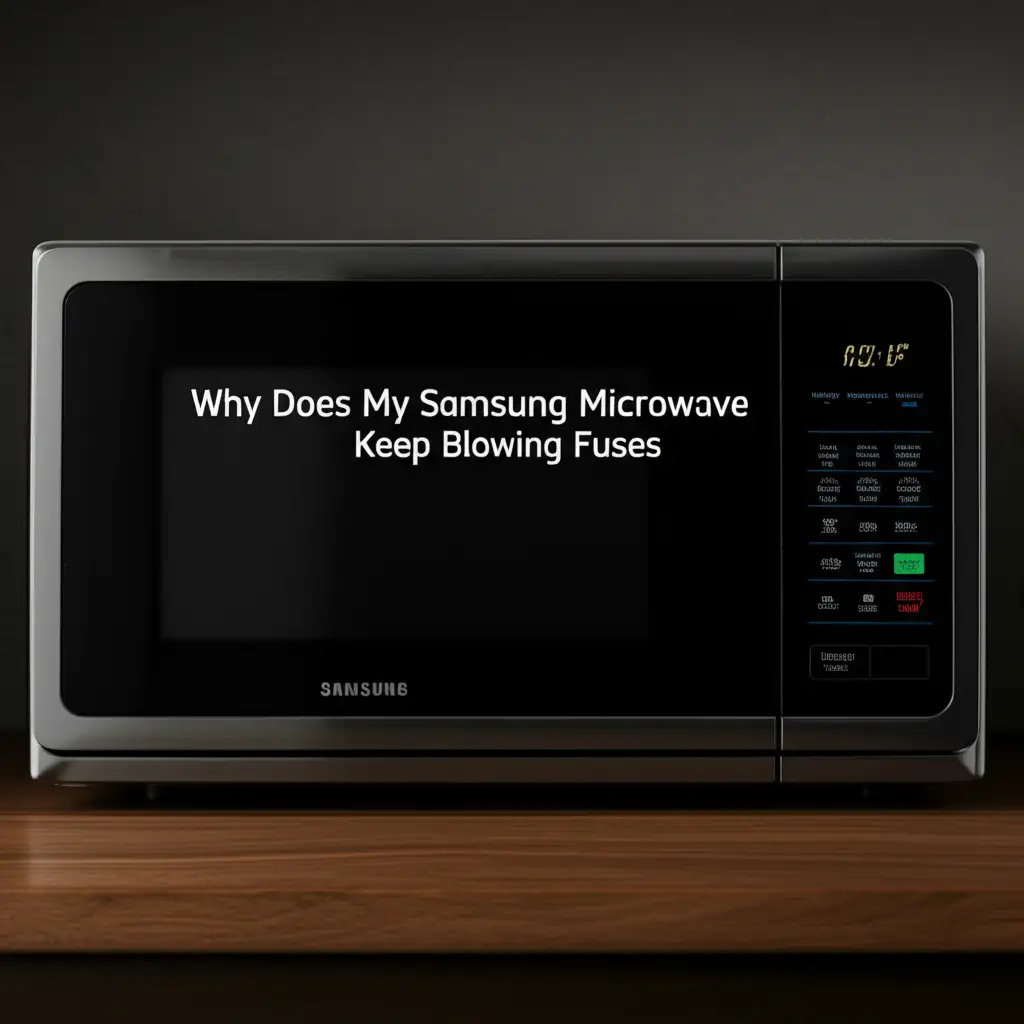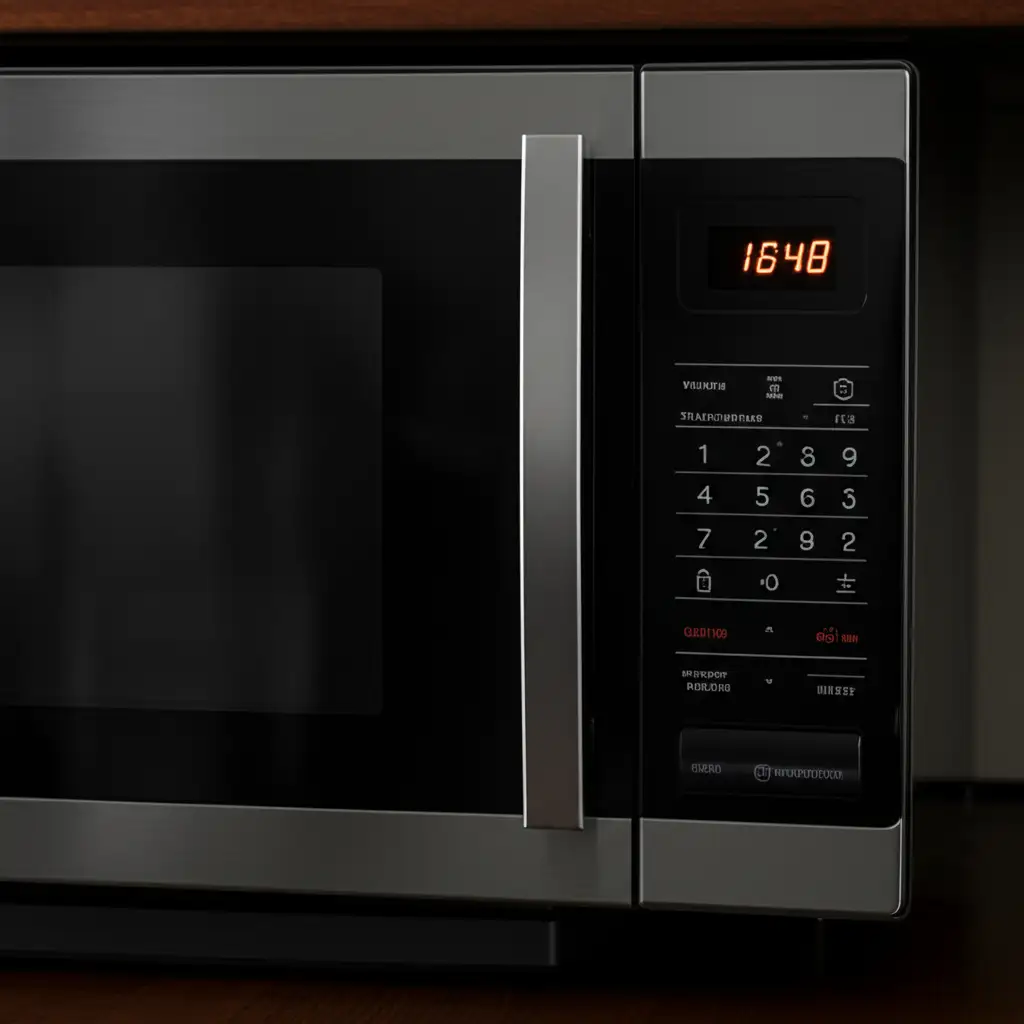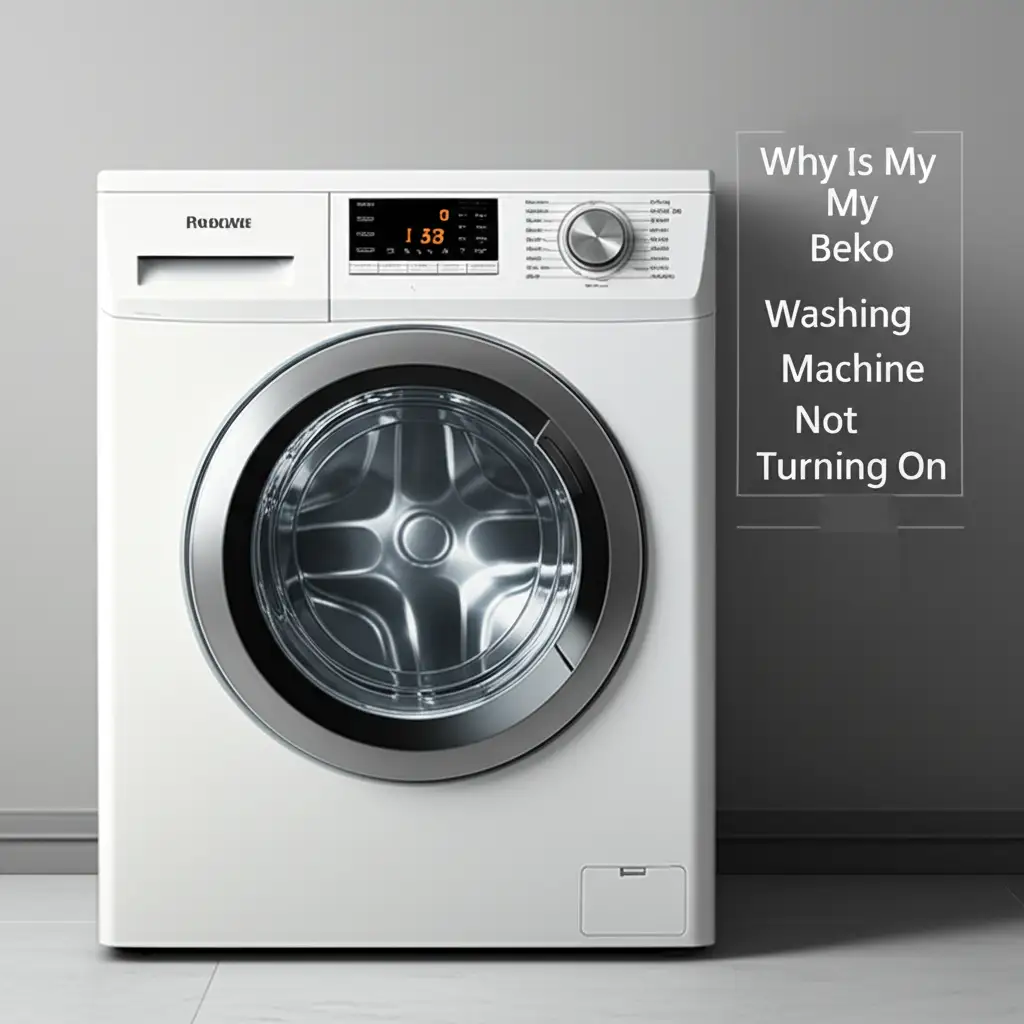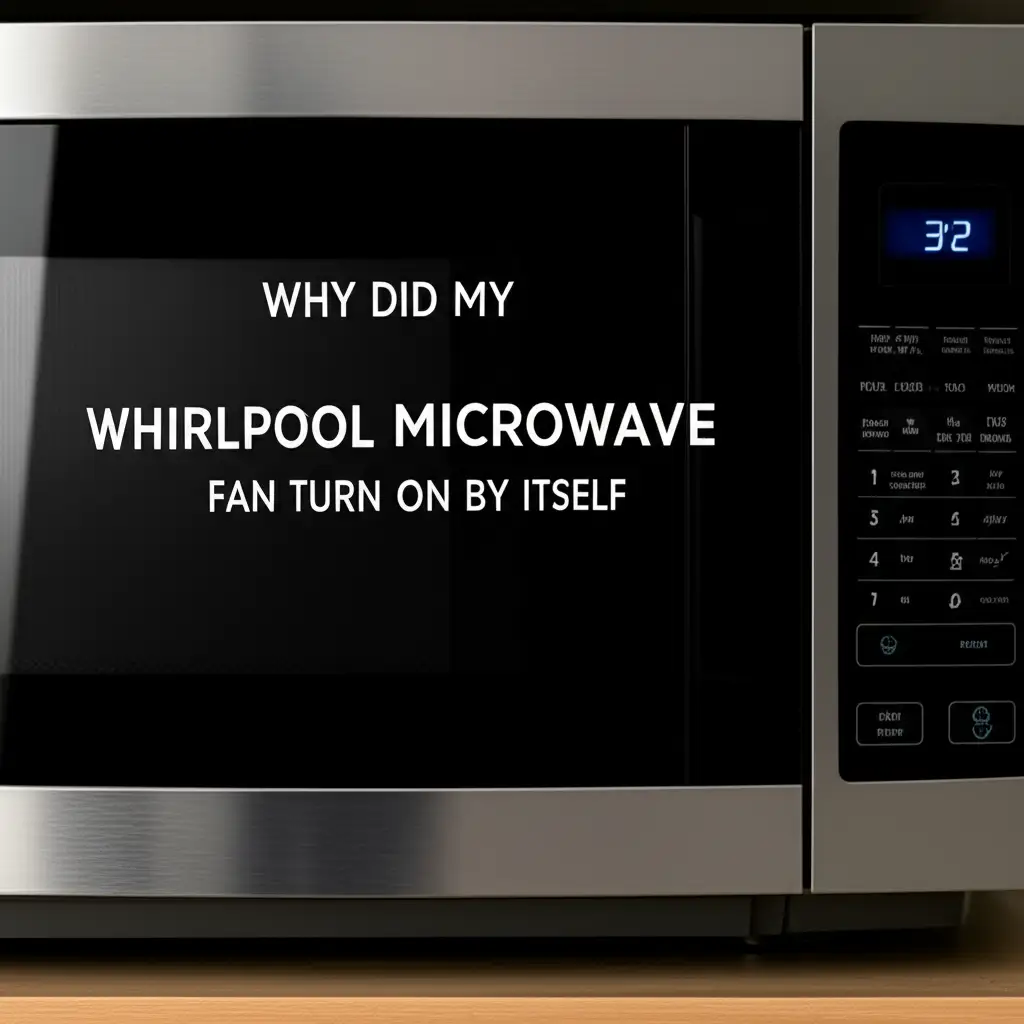· Todd Martin · Appliance Repair Guides · 20 min read
Why Does My Samsung Microwave Keep Blowing Fuses

Why Your Samsung Microwave Keeps Blowing Fuses: A Complete Guide
There is nothing more frustrating than a kitchen appliance that stops working. When your Samsung microwave keeps blowing fuses, it is more than just an inconvenience. It signals an underlying electrical problem that needs attention. This issue can leave you wondering what went wrong and how to fix it safely.
I understand the annoyance and worry this problem brings. A blown fuse often indicates a crucial component inside the microwave has failed. It can also point to issues with your home’s electrical supply. This comprehensive guide helps you understand why your Samsung microwave blows fuses. We will cover common causes, safe troubleshooting steps, and when to call a professional. Get ready to bring your microwave back to life.
Takeaway
- A microwave fuse blows to protect the appliance from damage.
- Common reasons for a Samsung microwave blowing fuses include faulty door switches, shorted high-voltage diodes, or failing capacitors.
- External electrical issues like power surges or overloaded circuits can also cause fuse failures.
- Always prioritize safety. Unplug the microwave before inspection.
- Consult a professional appliance technician for high-voltage component repairs.
Your Samsung microwave likely blows fuses due to a faulty door switch, a shorted high-voltage diode, a failing capacitor, or a defective magnetron. Power surges or overloaded circuits can also cause this issue. Each problem triggers the fuse as a safety measure.
Understanding Why Your Samsung Microwave Blows Fuses
When your Samsung microwave keeps blowing fuses, it signals an important safety mechanism at work. The fuse acts as an electrical circuit’s weakest link. It intentionally breaks when it detects an excessive current flow. This prevents more severe damage to the microwave or your home’s electrical system.
Understanding this protective role helps you identify the root cause. A microwave draws a lot of power. Any internal fault that increases this current can immediately trigger the fuse. It is the microwave’s way of telling you something is wrong internally or with its power source. Let us look at what makes the fuse sacrifice itself.
The Role of the Microwave Fuse
The fuse in your Samsung microwave is a critical safety component. It is a small wire designed to melt and break the electrical circuit when current exceeds a safe level. This action protects the microwave’s sensitive and expensive internal parts. Without a fuse, an electrical fault could lead to overheating, fires, or damage to other appliances.
When the fuse blows, it means too much electricity tried to pass through. This can happen due to a sudden spike in power. It also occurs if a component inside the microwave malfunctions. The fuse safeguards the entire unit. Replacing a blown fuse without fixing the underlying cause will only lead to repeated blowouts.
Common Causes of Blown Fuses
Several issues can cause your Samsung microwave fuse to blow. Most problems involve electrical components drawing too much power. Others relate to external electrical conditions. The most common culprits include faulty internal parts.
These parts are typically the door interlock switches, the high-voltage diode, the high-voltage capacitor, or the magnetron. External factors like power surges also play a role. It is important to consider all possibilities for an accurate diagnosis. Isolating the problem helps ensure a lasting repair.
Faulty Door Switches: A Frequent Culprit
One of the most common reasons your Samsung microwave keeps blowing fuses involves faulty door switches. Microwaves have safety interlock switches that ensure the door is securely closed before operation. These switches prevent the microwave from emitting radiation when the door is open. They are vital for user safety.
When a door switch malfunctions, it can create an immediate short circuit. This often happens as you open or close the microwave door. The sudden surge of current triggers the main fuse. I have seen this issue many times, and it is a good place to start your troubleshooting.
How Door Switches Work and Fail
Microwave ovens use two or three door interlock switches. These switches tell the microwave’s control board whether the door is open or closed. They complete the circuit needed for operation. When you close the door, the switches engage, allowing power to flow to the magnetron and other components.
A faulty door switch can fail in a few ways. It might become stuck in an open or closed position. Sometimes, the internal contacts of a switch wear out and short circuit. This short causes a direct path for electricity, bypassing normal operations. The fuse blows instantly to protect the system from this uncontrolled current. This often explains why your microwave blows a fuse right when you try to use it or open the door.
Testing and Replacing Door Switches
Checking door switches requires a multimeter. First, always unplug your Samsung microwave from the wall outlet. This is crucial for your safety. Locate the door switches inside the microwave cabinet, typically near the door latch assembly.
You will need to test each switch for continuity. A properly functioning switch will show continuity in one position (either open or closed) and no continuity in the other. If a switch shows continuous continuity or no continuity at all, it is faulty. If your microwave blows a fuse whenever you open the door, this is a very strong indicator of a failing door interlock switch. Learn more about this specific issue and how it impacts microwave operation at Why Does My Frigidaire Microwave Keep Blowing Fuses When I Open The Door. Replacing a faulty switch is often a straightforward fix for this problem.
High-Voltage Diode Issues and Their Impact
Another significant reason a Samsung microwave keeps blowing fuses relates to the high-voltage diode. This small, often black component is critical to the microwave’s heating process. It converts alternating current (AC) electricity into direct current (DC) pulses. This DC voltage is essential for the magnetron to generate microwaves.
When the high-voltage diode fails, it typically shorts out. A shorted diode creates a direct path for current where it should not exist. This direct path causes an enormous surge of electricity. The microwave’s main fuse blows immediately to prevent damage to other high-voltage components. This protects the capacitor and magnetron from overload.
The Diode’s Function in Microwave Operation
The high-voltage diode works in conjunction with the high-voltage capacitor and transformer. Its primary role is to rectify the high AC voltage from the transformer. This creates the extreme negative voltage required by the magnetron. Without a functional diode, the magnetron cannot receive the correct power supply. Consequently, it cannot produce the microwaves needed for heating food.
A healthy diode acts like a one-way valve for electricity. It allows current to flow in only one direction. This controlled flow is what builds up the necessary voltage for cooking. If the diode fails and allows current to flow both ways, it essentially shorts the high-voltage circuit. This short explains the immediate fuse blowout.
Symptoms of a Shorted High-Voltage Diode
A shorted high-voltage diode often presents clear symptoms. The most obvious sign is the main fuse blowing immediately when you try to start the microwave. Another common indicator is a loud buzzing or humming sound coming from inside the microwave, especially when you press the start button. This noise suggests that high voltage is present but not being properly converted or utilized.
You might also notice the microwave turning on, but not heating any food. This happens because the magnetron is not receiving the proper DC voltage to generate microwaves. If your Samsung microwave turns on but does not heat, and the fuse also blows, the high-voltage diode is a primary suspect. This symptom is similar to issues discussed in guides like Why Does My Samsung Microwave Turn On But Not Heat. Always ensure the microwave is unplugged before inspecting any internal components.
The Capacitor and Magnetron: High-Voltage Hazards
When troubleshooting a Samsung microwave that keeps blowing fuses, the high-voltage capacitor and magnetron are critical components to consider. However, they also pose significant electrical hazards. These parts work together to generate the microwave energy. A fault in either can cause a fuse to blow. I cannot stress enough the danger associated with these components.
They store and utilize extremely high voltages, even when the microwave is unplugged. Proper safety precautions are absolutely essential before any inspection or testing. Never touch these parts without understanding how to safely discharge a capacitor first. If you are uncomfortable with high voltage, call a professional.
The High-Voltage Capacitor
The high-voltage capacitor is a large, cylindrical component that works with the transformer and diode. Its job is to store electrical energy and then release it, boosting the voltage to power the magnetron. This surge of voltage is what allows the magnetron to create microwaves.
If the capacitor fails, it can either short circuit or become open. A shorted capacitor will draw an immense amount of current. This excessive draw immediately causes the main fuse to blow. Symptoms of a bad capacitor can include a loud hum or buzzing noise, similar to a faulty diode. Because it stores a charge, even after the microwave is unplugged, it can deliver a lethal electric shock. Professionals use a specific tool to safely discharge it before any work begins.
The Magnetron’s Role
The magnetron is the core component responsible for producing the actual microwave energy. It is a vacuum tube that generates microwaves when supplied with extremely high DC voltage from the capacitor and diode circuit. It is the part that literally cooks your food.
Over time, magnetrons can fail. A failing magnetron might draw too much current as it tries to operate. This excessive current draw can overload the circuit and cause the fuse to blow. Symptoms of a bad magnetron include no heating or partial heating of food, combined with a blown fuse. Sometimes, you might hear a high-pitched buzz or see visible arcing inside the microwave cavity. If your Samsung microwave turns on but doesn’t heat and also blows fuses, a failing magnetron is a strong suspect. This component is costly to replace and requires expert handling due to high voltage.
Power Surges and Electrical Overloads
Sometimes, the issue of your Samsung microwave blowing fuses is not internal to the appliance itself. External electrical problems can also be the culprit. Power surges and overloaded circuits are common reasons. These external factors can send an uncontrolled amount of electricity to your microwave. The fuse then acts as a safety measure.
Understanding your home’s electrical system is crucial here. Your microwave demands a dedicated, stable power supply. Any interruption or excess current from the outlet can cause problems. It is worth investigating your power source before assuming the microwave is broken.
Power Surges
A power surge is a sudden, brief increase in electrical voltage. These surges can originate from within your home, perhaps when a high-power appliance like a refrigerator or air conditioner cycles on. They can also come from outside, such as lightning strikes or issues with your utility company’s power grid. When a surge hits your Samsung microwave, the sudden influx of power can exceed the fuse’s tolerance.
The fuse blows immediately to protect the microwave’s delicate internal electronics from the voltage spike. While a single surge might blow the fuse once, repeated fuse blowouts due to surges suggest a need for surge protection. Consider using a quality surge protector for your microwave. This can prevent future fuse issues caused by power fluctuations.
Overloaded Circuits
Your home’s electrical circuits are designed to handle a specific amount of current. An overloaded circuit occurs when too many appliances are plugged into outlets on the same circuit and drawing power simultaneously. Microwaves, being high-wattage appliances, draw significant current. If you have your Samsung microwave, toaster oven, and coffee maker all running on the same circuit, you risk exceeding its capacity.
When the circuit becomes overloaded, it tries to pull more current than it can safely handle. This excessive current then travels to your microwave, causing its fuse to blow as a protective measure. If your circuit breaker also trips when the microwave fuse blows, this is a strong sign of an overloaded circuit. It is important to distribute your high-power appliances across different circuits in your home. This prevents frequent fuse blowing and circuit breaker trips. Many different appliances can cause a fuse to blow from an overloaded circuit. For instance, sometimes a heat pump can blow a fuse due to similar electrical demands, as explained in Why Does My Heat Pump Keep Blowing Fuses.
Faulty Wall Outlets
Sometimes, the problem isn’t the microwave or the circuit, but the wall outlet itself. A faulty wall outlet can have loose wiring, damaged internal components, or incorrect wiring. These issues can create resistance or intermittent connections. This leads to voltage fluctuations or short circuits.
When your Samsung microwave plugs into such an outlet, the unstable power supply can cause it to draw inconsistent current. This erratic draw can occasionally spike, leading the microwave’s fuse to blow. You might notice the outlet feels warm, or experience flickering lights when the microwave runs. Testing the outlet with a voltage tester can help confirm if it is supplying consistent power. If you suspect a faulty outlet, I recommend having a qualified electrician inspect and repair it.
Step-by-Step Troubleshooting Your Samsung Microwave
Troubleshooting your Samsung microwave that keeps blowing fuses requires a systematic approach. Always prioritize safety first. Disconnect power and understand the dangers of high-voltage components. This section provides a guide to help you identify the problem.
Remember, if you are uncomfortable with any step, especially those involving electrical testing, stop and seek professional help. Your safety is more important than a quick fix. Proceed with caution and care through each step.
Safety First
Before you do anything, ensure your Samsung microwave is completely disconnected from the power source. Unplug it from the wall outlet. This is the single most important safety step. Even with the microwave unplugged, the high-voltage capacitor can retain a lethal electrical charge. This charge can remain for several minutes or even hours after use.
If you plan to inspect internal components, you must know how to safely discharge the capacitor. This typically involves using a high-voltage probe or a ceramic resistor and screwdriver to bridge the capacitor terminals. If you are not trained or comfortable doing this, do not proceed with internal inspection. Call a qualified appliance repair technician. Attempting to repair high-voltage components without proper knowledge and tools can result in severe injury or death.
Inspect the Fuse
Once the microwave is safely unplugged, you can locate and inspect the fuse. Most Samsung microwaves have a main line fuse, usually located near the power cord input or inside the control panel. It often looks like a glass tube with metal caps on each end. Carefully remove the fuse (you may need a screwdriver to open the housing).
Hold the fuse up to a light source. If the thin wire inside is broken or if the glass appears dark or cloudy, the fuse is blown. You can also use a multimeter set to continuity mode to test the fuse. A good fuse will show continuity; a blown fuse will not. If the fuse is blown, do not replace it yet without identifying the cause. Replacing it without fixing the underlying issue will only result in another blown fuse.
Check Door Switches
As discussed, faulty door switches are a common cause. After unplugging the microwave, open the outer casing (usually requires removing screws from the back or sides). Locate the door interlock switches, typically three of them, near the door latch mechanism. Disconnect the wires from each switch.
Use a multimeter set to continuity mode. Test each switch according to its type (normally open or normally closed). A healthy switch will show continuity in one position (door open or closed) and no continuity in the other. If a switch shows constant continuity or no continuity regardless of its position, it is faulty. Replace any defective door switches. This fix often solves the fuse problem, especially if the fuse blows when you open the door or try to start the microwave. For more general troubleshooting advice on Samsung microwaves, you can look at guides like Why Does My Samsung Microwave Keep Shutting Off, as many issues share diagnostic steps.
Test High-Voltage Components (with extreme caution)
Testing the high-voltage diode, capacitor, and magnetron requires specialized knowledge and tools, including a high-voltage multimeter. I strongly advise against attempting these tests yourself unless you are a trained professional. As mentioned, the capacitor stores a lethal charge. Even professionals take great care.
However, if you are a trained technician, you would first discharge the capacitor. Then, test the diode for proper rectification using a multimeter’s diode setting. An open or shorted diode needs replacement. For the capacitor, test its capacitance with a multimeter; a shorted capacitor will show zero resistance. Testing the magnetron typically involves checking its filament for continuity; a lack of continuity or a grounded filament means it is faulty. Due to the high voltage risks, this is where most DIY efforts should stop.
Examine for Wiring Issues
Finally, conduct a visual inspection of the internal wiring inside your Samsung microwave. Look for any signs of burnt wires, frayed insulation, or loose connections. Sometimes, wires can become pinched or rub against metal components, causing a short circuit. Pay close attention to the wiring connected to the high-voltage transformer, capacitor, diode, and magnetron.
If you find any damaged wires, they must be properly repaired or replaced. Loose connections can also cause intermittent electrical issues that lead to fuse blowouts. Ensure all wire connectors are secure. A careful visual inspection can sometimes reveal obvious problems that simpler tests might miss. Always ensure power remains disconnected during this inspection.
When to Call a Professional for Samsung Microwave Repair
While some troubleshooting steps for a Samsung microwave that keeps blowing fuses are manageable, there comes a point when professional help becomes essential. This is especially true when dealing with high-voltage components. Microwaves contain parts that can store thousands of volts of electricity. This voltage can deliver a lethal shock, even when the appliance is unplugged.
I always recommend calling a professional appliance repair technician if you are uncomfortable with electrical work. It is also wise to seek expert help if you lack the proper testing tools. Professional technicians have the training, experience, and specialized equipment to diagnose and safely repair complex microwave issues. Your safety and the proper function of your appliance depend on it.
Emphasizing the Dangers of High Voltage
The primary reason to call a professional relates directly to the extreme high voltage inside a microwave. The high-voltage capacitor, in particular, can retain a charge of over 2,000 volts even after the microwave has been unplugged for hours or days. This stored energy is enough to cause severe injury or death upon contact. Unlike household outlets, microwave voltage is stepped up significantly.
Amateur attempts to test or repair these components without proper discharge procedures are incredibly risky. Technicians use specific methods and tools to safely discharge the capacitor before touching anything inside. Do not risk your life to fix an appliance. A blown fuse is a sign of a potentially dangerous internal fault, not just a simple fix.
When to Avoid DIY
You should avoid DIY repair attempts in several situations. First, if you do not own or know how to use a multimeter to test for continuity and voltage, stop. These tools are basic for electrical troubleshooting. Second, if you are asked to discharge a capacitor and do not know the exact, safe procedure, call an expert. This step is non-negotiable for safety.
Third, if the problem points to a high-voltage component like the diode, capacitor, or magnetron, it is best left to professionals. These parts are complex and dangerous. Fourth, if you have replaced the fuse and it blows again immediately, it signals a serious internal short that needs professional diagnosis. Finally, if you simply feel uncomfortable or unsure at any point, trust your instincts. A professional repair can save you time, money, and most importantly, ensure your safety.
Benefits of Professional Service
Hiring a professional for your Samsung microwave repair offers several benefits. Firstly, they ensure safety. Technicians are trained in safe handling of high-voltage components and follow strict safety protocols. This protects both them and your home. Secondly, professionals have the expertise to accurately diagnose the problem. They can pinpoint the exact faulty component, preventing unnecessary part replacements.
Thirdly, they have access to genuine Samsung replacement parts. Using authentic parts ensures compatibility and longevity of the repair. Fourthly, professional repairs often come with a warranty. This gives you peace of mind that the repair is done correctly. Finally, it saves you time and frustration. Instead of endlessly troubleshooting, you get a reliable fix. They understand issues like why a Samsung microwave might turn on but not heat, or other related problems, providing comprehensive solutions.
FAQ Section
Q1: Can a faulty outlet cause my Samsung microwave to blow fuses?
Yes, a faulty wall outlet can cause your Samsung microwave to blow fuses. Issues like loose wiring or a damaged receptacle can create an unstable power supply. This instability can lead to sudden voltage fluctuations. These fluctuations can cause the microwave to draw inconsistent current, which may spike and blow the fuse as a protective measure.
Q2: How do I know if my microwave fuse is blown?
You can usually tell if your microwave fuse is blown by visual inspection. A good fuse has a continuous wire inside; a blown fuse will have a visibly broken or burnt wire. The glass tube might also appear darkened or cloudy. You can confirm this by using a multimeter set to continuity mode. A blown fuse will show no continuity.
Q3: Is it safe to replace a microwave fuse myself?
Replacing a microwave fuse can be safe, but only if you take proper precautions. Always unplug the microwave first. Be aware that high-voltage capacitors inside can store a lethal charge even when unplugged. If you are not comfortable discharging the capacitor or dealing with internal wiring, it is safer to call a professional technician.
Q4: Why does my Samsung microwave blow a fuse when I open the door?
If your Samsung microwave blows a fuse when you open the door, it almost always points to a faulty door interlock switch. These safety switches ensure the microwave does not operate with the door open. A short circuit within one of these switches as the door moves can cause an immediate surge of current, blowing the main fuse to protect the appliance.
Q5: Can I use a regular fuse in my Samsung microwave?
No, you should not use a regular fuse in your Samsung microwave. Microwaves require a specific type of fuse, usually a “fast-blow” ceramic fuse with a precise current rating (amperage) and voltage rating. Using an incorrect fuse type can lead to improper protection, appliance damage, or even fire hazards. Always replace it with an identical fuse.
Conclusion
Dealing with a Samsung microwave that keeps blowing fuses is a common yet frustrating experience. We have explored the primary culprits behind this issue, from internal component failures like faulty door switches, shorted high-voltage diodes, and problematic capacitors or magnetrons, to external electrical issues such as power surges and overloaded circuits. Each blown fuse serves as a critical safety signal, protecting your appliance from further damage.
Remember, safety is paramount when troubleshooting any electrical appliance. Always unplug your Samsung microwave before inspection. Be extremely cautious around high-voltage components; if you lack the proper training or tools, never attempt to test or replace them yourself. For complex issues or if you feel any discomfort, do not hesitate to seek the expertise of a professional appliance repair technician. Addressing the root cause, whether through careful DIY troubleshooting or professional assistance, ensures your Samsung microwave returns to safe and efficient operation. Get your kitchen back in order and enjoy the convenience of a working microwave once again.
- Samsung Microwave
- Microwave Repair
- Blowing Fuses
- Appliance Troubleshooting





